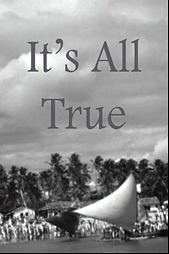
Prainha
do Canto Verde
ca. 1990
The origin of the first family of fishermen settling in Prainha do Canto Verde goes back to the mid 19th century.
The fishermen in the northeast of the Brazilian coast lived then as today from lobster fishing. The fishermen's Jangadas were suitable for commercial lobster fishing since the sea is very shallow along this coast. However, the lobster gained commercial value only about 1930. In the 1950s it generated a large trade surplus for Brazil
The lobster banks are still concentrated around the ports between Fortaleza and Recife and generated in the 1950s a large trade surplus for Brazil.
In the early 1960s, the conflict between France and Brazil over the capture of crustaceans was sometimes ironically called the "Lobster War".
France had lost its status as a colonial power, and with it its African fishing grounds, just as the lobster was gaining worldwide popularity.
The conflict was fuelled in 1961 by the Brazilian decision to ban French and international vessels from its exclusive fishing zone. In 1962/63 some French lobster fishing boats were captured.
In 1963, President de Gaulle sent out warships to the area, in order to protect his French fishermen.
Brazil countered and the press played it up, but after a brief period of tension followed by negotiation, the conflict was finally resolved peacefully. The Brazilian government ordered its ten warships, which had been alerted to the "Lobster War" with France, back to their home ports.

However, to the local Brazilian fishermen the war was of little use, as they were dependent on large bulk buyers and their financial and social situation was desolate.
under the military dictatorship of the 70’s/80’s, their situation deteriorated even more drastically.
At that time the first flatbottom motorboats were subsidized for lobster fishing and lobster piracy was born.
In Prainha, people still lived in straw huts and only social facilities like the school were housed in the only brickbuilding in the village. There was still no community centre where the fishermen could gather.


Although supported at that time by a local priest, the fishermen’s dismal condition changed only slowly for the better when a Swiss environmental activist , René Schärer, first settled in Prainha do Canto Verde, where he later began to organise artesanal fishermen along the entire coast of Ceará. With the help of foundations, he founded a school in Prainha, organised teacher training, medical care and practical courses for the inhabitants in general. This resulted in the first generation of young people with good quality education. Child mortality was reduced from almost 30% to zero. That the fishing village as such still exists today, is credited to him. However, he did not only make friends: he received threats several times and was dragged to court. Today, after a long illness, he still lives in Prainha but in seclusion.

One of his first major actions was the revival of historical traditions. He encouraged the revival of a historic regatta. At that time, in 1941, the fishermen had undertaken a long journey on a local fishing boat - a jangada - from Fortaleza to Rio de Janeiro along the coast. On the way they had stopped often to draw attention to their social problems, and to the problem of overfishing. The trip had received a lot of attention.

"Raid on Brazilian fishing village
In the 1980's they initially tried to drive away the then 1100 villagers with forged land titles.

Later it became known that Tales de Sá Cavalcant, an oligarch from Fortaleza, was behind it. He had built an illegal luxury villa on the beach at the edge of the village.The Prainhans fought back. They had experienced how the fishermen of Canoa Quebrada lost their livelihood when they sold their beach huts cheaply to investors, and from then on could only survive as photo motifs or luggage carriers. Their children were exposed to prostitution and drugs.
However, mass tourism is not the only problem in the fishing village Prainha do Canto Verde.
One of the structural problems - then as now - is bribery in the electorate. A few kilometres of asphalted road, and/or connection to the power grid and street lighting are not normally guaranteed. Prainha only got all this in 1998 - as an election gift. However, there was no extension to the infrastructure until the next election. This is how Brazilian politics still work today.
Unfortunately, at the turn of the millennium, the drug mafia moved into the village. The provincial capital, Fortaleza - only two hours away by car - has become one of the most important drug handling centres in South America. The young fishermen have also become acquainted with crack cocaine and other drugs. This led to some burglaries and robberies, even to murder. Some were imprisoned. That seemed deterrent enough to calm the situation a little, but the drug problem is not solved. In an area without social assistance from the state and access to therapy, parents are helpless.
2014: Documentary about the complexity of problems in Prainha do Canto Verde; in German only
Older reports about Prainha do Canto Verde; in German only
1997/98
2000
nano/ 3sat
Kindersendung SRF
nano/ 3sat
Video cours for young people
2010
2006



